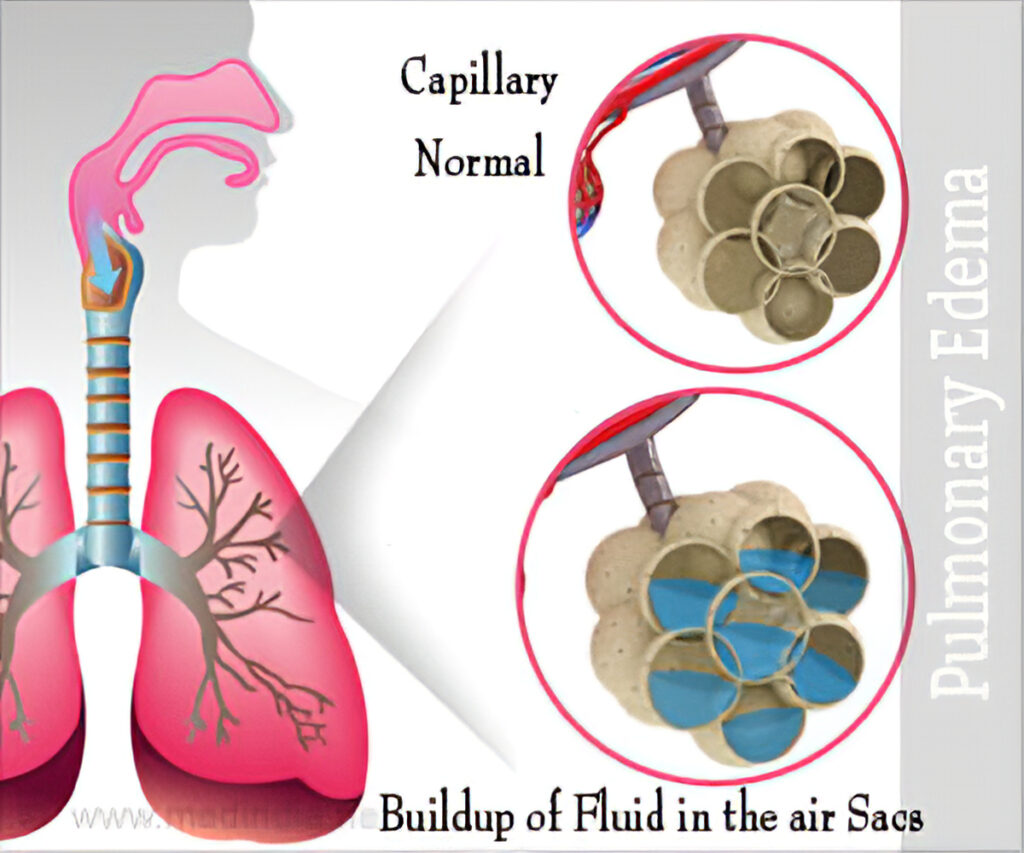Patients
- Upload Prescription
- Request A Call Back
- Book A Test
- Download Report
- TRF For COVID-19
- Feedback
Pulmonary edema is a condition caused by excess fluid in the lungs. This fluid collects in the numerous air sacs in the lungs, making it difficult to breathe. In most cases, heart problems cause pulmonary edema. But fluid can collect in the lungs for other reasons, including pneumonia, exposure to certain toxins and medications, trauma to the chest wall, and traveling to or exercising at high elevations.
Pulmonary edema that develops suddenly (acute pulmonary edema) is a medical emergency requiring immediate care. Pulmonary edema can sometimes cause death. The outlook improves if you get treated quickly. Treatment for pulmonary edema varies depending on the cause but generally includes supplemental oxygen and medications.

If you have risk factors for coronary artery disease — such as high blood pressure, high cholesterol, tobacco use, diabetes, obesity a strong family history of heart disease — talk to your doctor. Your doctor may want to test you for coronary artery disease, especially if you have signs or symptoms of narrowed arteries.
a division of exult cares pvt. ltd.